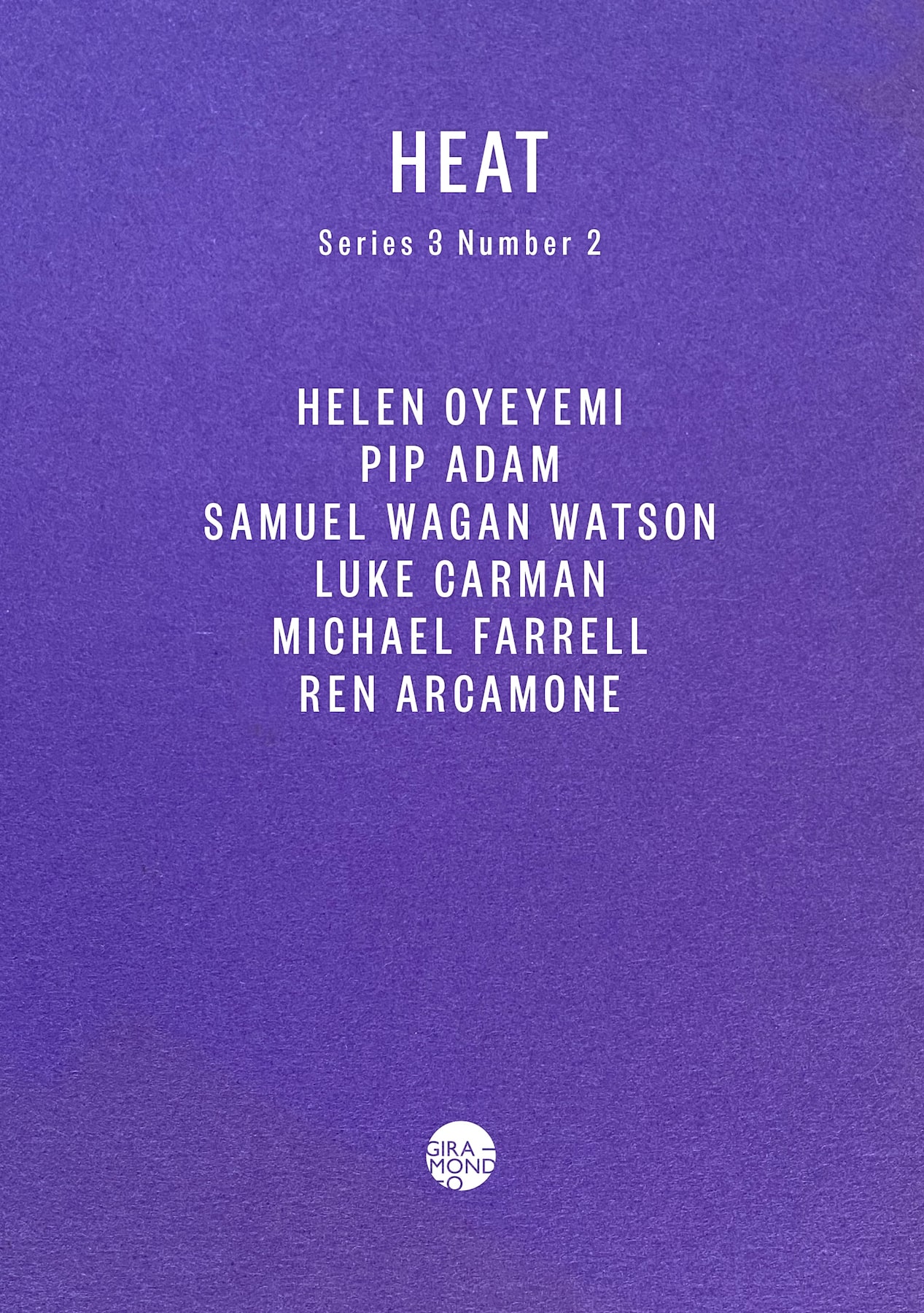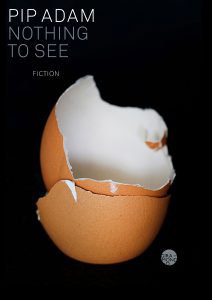Unlock to Ride
In hindsight, I probably heard the first ones but ignored them. They were probably background to whatever was going on in my foreground and I brushed them off. Maybe it was the microwave, maybe it was a notification on my phone. A hidden box left unchecked, something I’d lost interest in, was maybe still paying for. They were sudden noises. When there were only a few of them, at the start, the dingdingding or the chugga-chug was here and then gone before it fully registered.
The flat was not cheap and not really a flat. I was staying in the wide-open space of a coffee roastery. I wanted to say it was on the outskirts of town. That I stayed in a studio space on the outskirts of town. But when I tried it out the first few times it sounded terrible. I wanted it to sound like I was a cowboy of some sort but it came off sounding like I was a real estate agent. It was hot in the summer and freezing in the winter and twenty-seven other people lived there.
The roastery was a cover for the accommodation rort our landlord was pulling. The whole warehouse was divided with heavy curtains into small rectangular spaces where we all slept in single beds. Every space looked the same and it was hard to tell them apart. Our landlord called them pods but it was more like a battery. At least once a week I would walk into the wrong pod and lie down on the wrong bed. I bought a pillowcase with a small kitten and a butterfly on it. This worked for a couple of days but then someone stole the pillowcase. When I located it the next night I was, again, in the wrong pod.
‘I think this is mine,’ I said to Duncan, after he told me to get out of his pod.
‘I don’t think so,’ he said.
‘Okay,’ I said and left, spending about fifteen minutes peeking through the gaps in curtains until I found the bed without a pillowcase.
Above all, peace was important. None of us had anywhere else to go. Every house in the city was full. Every garage, every car, under every bridge. There wasn’t a single place left to stay. It was Bethlehem as far as the eye could see.
In hindsight, it’s little wonder I didn’t hear them to start off with. Twenty-seven people make a lot of noise, even when they’re sleeping – especially when they’re sleeping. And the e-scooters didn’t all come at once.
Earlier in the year, I had gone to my parents for dinner and my father was reading his phone. My mother and father had worked hard and were older so there were only seven other people living in the rugby clubrooms they rented. It was a nice place. Someone had put up screens like people used to have in offices, when people used to have offices, so there were no curtains and there was more space, and people decorated. Occasionally, I’d be visiting and someone would come round the edge of one of the screens, see my parents and say, ‘Oh sorry.’ But it was a very rare occurrence.
‘What about these electronic scooters,’ my father had said, not lifting his head from his phone. My mother had a bluetooth headset on, so I knew he wasn’t talking to her.
‘Oh,’ I said.
‘You rent them,’ he said. ‘On your phone.’
‘Cool,’ I said.
‘To make short trips.’
My father drove people around and they would pay a company money and the company would pay him a small amount of this money. He would find out who to pick up and where, from his phone which sat in a frame clipped into the air conditioning vent of their family car. Sometimes he would find himself a long way from the rugby clubrooms where he lived and he wouldn’t want to drive home without a paying job so he would park the car and wait, sometimes on the side of the road, sometimes in a car park, and read his phone. When I was small he told me about the illuminati. When I was seventeen he tried to talk me into buying a seat on an aeroplane that didn’t exist and was in fact a pyramid scheme but I didn’t have the $100 it cost, so he asked me to ask the other hairdressers at my work. This was before the hairdressing salon was converted into an aged care facility.
My father loved his phone. He often said young people loved their phones too much, but my father loved his phone more than anyone I knew. He also drove food to people’s doors and sometimes someone would ask him to pick up something else – a jacket someone had left at a party, or a pair of shoes, or a document that had been signed by someone and needed to be signed by someone else. Sometimes people would bring their pets in his car to travel the short trip to their vet. I could see his concern.
Our city is a hilly city. Like San Francisco where the scooters had come from – where everything came from. I said that. That we lived in a hilly city. And my father said, ‘It’s of no concern to me,’ because whenever my father is scared he says brave things that are often also aggressive. My father would fight the scooters with his bare hands if they so much as tried to take the food to people’s doors or the documents, and if he saw someone on one, he would smack them in the face, carry their unconscious body to the door of his white Prius and drive them to where he thought they wanted to go. A machine had taken his job at the large warehouse, which was now student accommodation, and he would have fought the machine too if they hadn’t taken his swipe card off him as he left on his last day. But now the robot that picked things off the shelves was out of a job as well. ‘If you wait long enough,’ he said, as if he was reading my mind. ‘It all comes around.’
‘Oh,’ I said. ‘Cool.’
My mother was ordering dinner then on her phone, still talking on her headset. Asking someone if they had tried changing the password for their router. Someone would drive our food in their Prius to us. Not my father. My father was having a night off, because I was visiting for dinner. But I could tell, it was hard for him to be paying someone else to bring him our food.
The thing with the scooters was they were quiet when they were moving. When I first came into contact with them it was as they sped past me on the footpath – silently. I was not the least clumsy person I knew or the luckiest. My mother had told me when I was young that what she had really wanted was an abortion but it was impossible. She only told me once and I’m sure if I asked her again, now say, she would deny it but this comment became my core narrative – my origin story – and I spent life with a very real sense that at any moment and in a snap or some other split-second sound I would simply cease to exist. The rest of the world would be unchanged. No one would remember me, because instead of disappearing, I would have never existed. Some days this made me sad, but some days, like the day Duncan took the pillowcase with the kitten then denied it was mine, the thought – the not existing – felt like something to really aspire to. This was the soup of my subconscious. The river that ran through me, almost unnoticeable, like a stream deep under rock, and I often wondered when I wasn’t sleeping if this was the cause of my constantly being in danger. I never saw another person suffer the close calls and near misses I experienced with the scooters. When they first arrived it was as if they lay in wait, just as I was overtaking another pedestrian on the clogged footpaths, or stepping round something, they would speed by – silent. But, like most things, this was wishful thinking. Soon, and in direct proportion to me looking for it, I saw more and more people jumping out of the way, shouting, and even a few being hit.
‘Should they be on the road?’ Adelle asked one day. We worked in a cat grooming salon and maybe she was right but I shrugged like I didn’t have an opinion and probably I didn’t.
Over the months there were more and more. Another company started and then another and before long it felt like everyone had their faith in the electric scooters, and that was when I started hearing them. One night, at the warehouse, the only bed I could find was against the wall of the roastery. It was freezing because the wall was tin-thin and outside was the cold, night air. I couldn’t sleep, or wouldn’t, because I knew someone would be along any minute to tell me I was in their bed and I would have to hunt and peck for a new place to sleep.
I think I heard the van first, but a van wasn’t much, the roastery was in an industrial area and there were always vans. But then the van stopped, a gate opened, and the door of the van slid open and then I heard it, the honking and beep and then the quiet calm voice, that sounded a bit like my mother, saying, ‘Please unlock to ride.’ I listened as they pulled several more of the scooters out of the van, rode them a short distance inside the gate and let them fall onto what sounded like a very small but already existing pile of scooters that had already been dropped off which I had never noticed. One after another. Then the van left and it was just the scooters clicking and buzzing. Asking each other to unlock to ride. In the chatter I fell deeply asleep.
My phone alarm woke me up and as I turned it off, the honking and the chime was still there. Over the sound of the birds, the hum of the motorway falling into line with it. Like a sound bed, like it was the new sound bed of our roastery and I said, ‘Good morning,’ to the scooters without thinking. The service industry will do that to you.
The bathroom was busy. We jockeyed for space at the mirrors and leaned in and over each other to spit the toothpaste from our mouths. The noise of us was loud, bouncing off the concrete walls of what had surely been designed for three people at a time, maybe four. I listened hard for the scooters but the bathroom was on the other side of the warehouse and I couldn’t hear them at all.
It was cold outside. I pulled my hat down over my ears. It was pointless, my glasses formed a gap and the wind blew in, so did the sound of the scooters. Each morning, the few of us who had jobs that couldn’t be done from home walked with purpose to the bus stop or to the train. As the others walked past, I stood still and turned back towards the roastery trying to work out where I’d slept that night. Trying to work out which was the other side of the wall I had leaned on. Then I realised I could simply walk around the building until I found them, so I did.
I walked back to the door of the roastery and set off to the left. It wasn’t long before I hit a large fence with a container on the other side of it. The sound of the scooters was further away, so I turned back and walked towards it until I hit another fence with barrels piled against it. I looked behind me but there was no one there so I searched for a gap in the barrels to look through and found one. I needed to lean way to the right, rest my head hard into the wall of the roastery, but through it I could see them – maybe fifty scooters piled up, lights flashing, chattering.
As I watched trucks started arriving with more and more scooters. Instead of riding them gently to the pile these drivers threw them from a distance. Sometimes as they flew the scooters would call out, still in the calm voice, ‘Please, unlock to ride.’ As they landed they would honk – chugga-chug – angry and helpless as they lay in the pile, prompting more cries from the scooters they had hit or displaced. By lunchtime there were about a hundred of them and the trucks kept coming throughout the afternoon.
Probably from the moment I heard the first van, I knew I was going to climb the fence and visit them. The trucks stopped around two in the morning. I’d been there all day curled up now beside the fence listening. As they lost their charge the earliest ones to arrive slowed down adding an alto, then a tenor, then a bass, to the conversation that never fully lifted into song despite the three-note melody of the tones that almost resolved into something like striking clock bells. I was cold by 2 a.m., tired and I hadn’t eaten so it sounded more and more like they were calling me. The fence seemed somehow lower and, as I listened to the last truck leave, I felt strong and like if I could get to them I would be home in some kind of way I had never fully felt.
So I scaled the fence, not easily, not with any kind of grace. Once over I climbed awkwardly down the barrels and stepped onto the pile of scooters causing several of them to greet me with a honk which, like my father, sounded aggressive but was probably prompted by love. Walking across them was difficult. They shifted under my step and some of them tried to capture me by the ankle, they wanted me to stay that badly, but I was bound for the highest point of the pile where I could look out over them all. At the top an overwhelming tiredness came over me and I clicked and chimed and they clicked and chimed back at me as I lay down and sunk into the pile. The scooters readjusted themselves to nurse me deep within their honk and beep.



